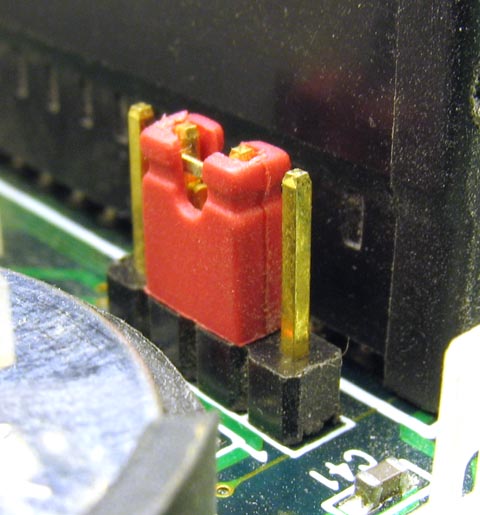GPIO generally only supports discrete outputs.
But for some types of hardware, like LEDs and some motors, the system has some inertia, and if you switch on and off fast enough, you get a result similar to having an intermediate voltage.
So with pulse width modulation we can fake analog output from digital output in a good enough manner.
These often come pre-soldered on devboards, e.g. and allow for easy access to GPIO pins. E.g. they're present on the Raspberry Pi 2.
Why would someone ever sell a devboard without them pre-soldered!
6x1 pin header
. Source. From Raw Crystal to Crystal oscillator
. Source. by United States Army Signal Corps (1943)How LEDs work by VirtualBrain
. Source. 2021. Good 3d schematics clearly explaining part of the LED electronic package.It resists to change in electric current. Well seen at: Video "LC circuit by Eugene Khutoryansky (2016)".
Although transistors were revolutionary, it is fun to note that they were just "way cheaper and more reliable and smaller" versions of exactly the main functions that a vacuum tube could achieve
As the name suggests, this is not very sturdy, and was quickly replaced by bipolar junction transistor.
By William Shockley in 1948 also at Bell Labs Murray Hill.
Pinned article: Introduction to the OurBigBook Project
Welcome to the OurBigBook Project! Our goal is to create the perfect publishing platform for STEM subjects, and get university-level students to write the best free STEM tutorials ever.
Everyone is welcome to create an account and play with the site: ourbigbook.com/go/register. We belive that students themselves can write amazing tutorials, but teachers are welcome too. You can write about anything you want, it doesn't have to be STEM or even educational. Silly test content is very welcome and you won't be penalized in any way. Just keep it legal!
Intro to OurBigBook
. Source. We have two killer features:
- topics: topics group articles by different users with the same title, e.g. here is the topic for the "Fundamental Theorem of Calculus" ourbigbook.com/go/topic/fundamental-theorem-of-calculusArticles of different users are sorted by upvote within each article page. This feature is a bit like:
- a Wikipedia where each user can have their own version of each article
- a Q&A website like Stack Overflow, where multiple people can give their views on a given topic, and the best ones are sorted by upvote. Except you don't need to wait for someone to ask first, and any topic goes, no matter how narrow or broad
This feature makes it possible for readers to find better explanations of any topic created by other writers. And it allows writers to create an explanation in a place that readers might actually find it.Figure 1. Screenshot of the "Derivative" topic page. View it live at: ourbigbook.com/go/topic/derivativeVideo 2. OurBigBook Web topics demo. Source. - local editing: you can store all your personal knowledge base content locally in a plaintext markup format that can be edited locally and published either:This way you can be sure that even if OurBigBook.com were to go down one day (which we have no plans to do as it is quite cheap to host!), your content will still be perfectly readable as a static site.
- to OurBigBook.com to get awesome multi-user features like topics and likes
- as HTML files to a static website, which you can host yourself for free on many external providers like GitHub Pages, and remain in full control
Figure 3. Visual Studio Code extension installation.Figure 4. Visual Studio Code extension tree navigation.Figure 5. Web editor. You can also edit articles on the Web editor without installing anything locally.Video 3. Edit locally and publish demo. Source. This shows editing OurBigBook Markup and publishing it using the Visual Studio Code extension.Video 4. OurBigBook Visual Studio Code extension editing and navigation demo. Source. - Infinitely deep tables of contents:
All our software is open source and hosted at: github.com/ourbigbook/ourbigbook
Further documentation can be found at: docs.ourbigbook.com
Feel free to reach our to us for any help or suggestions: docs.ourbigbook.com/#contact









